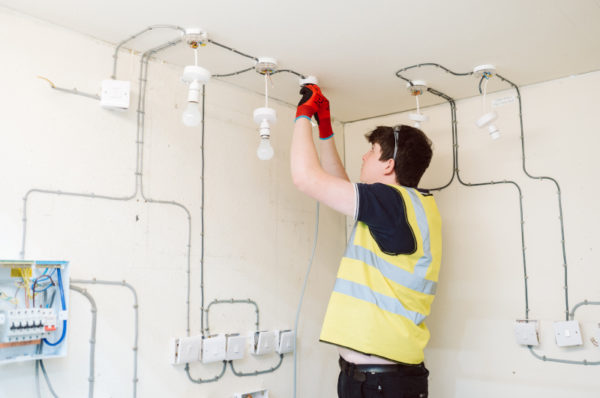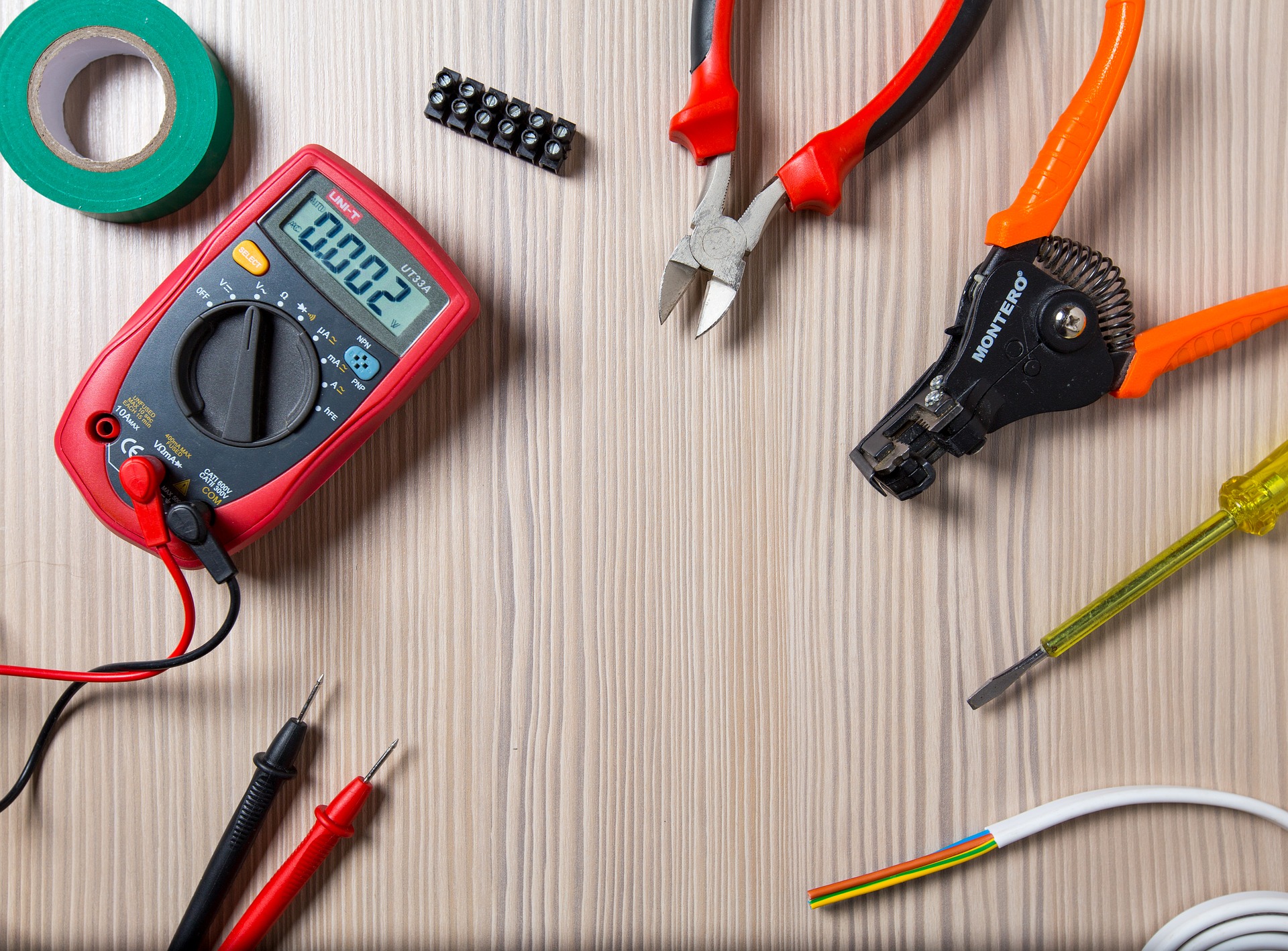Trust Fund BRE Electrical Melbourne for High-Quality Electrical Services
Trust Fund BRE Electrical Melbourne for High-Quality Electrical Services
Blog Article
Debunking Electric Installment: Recognizing Codes and Rules for a Lawful and Safe Arrangement
In the world of electrical installment, adherence to codes and laws is critical to guarantee both legality and safety. The complexities surrounding electrical work can be difficult, yet acquainting oneself with the well established requirements is essential to navigating this area with self-confidence. By comprehending the ins and outs of the National Electric Code and regional building codes, individuals can assure that their installments fulfill called for safety and security actions and remain in compliance with the law. Nonetheless, the trip to demystifying electric installment goes past simple familiarity with regulations; it necessitates a profound understanding of exactly how to execute secure electric practices effectively.
Relevance of Electrical Codes
The adherence to electrical codes is critical in making sure the safety and dependability of electric installations. Electrical codes act as a collection of standards and guidelines that determine the appropriate style, installment, and maintenance of electric systems. These codes are developed to minimize the risk of electrical dangers, fires, and other security issues that may occur from defective electrical job.

Moreover, electrical codes are frequently upgraded to incorporate brand-new innovations, ideal methods, and safety and security steps. Remaining updated with these codes is important for professionals in the electrical market to guarantee that their job fulfills the current security criteria. Ultimately, the importance of electric codes hinges on creating a safe and secure and effective electric framework that benefits both people and communities.
Key Laws for Security
Several basic guidelines regulate the safety and security criteria in electric setups. One essential policy is the National Electrical Code (NEC), which provides standards for secure electrical layout, setup, and evaluation to shield individuals and building from electric hazards. The NEC covers aspects such as circuitry techniques, grounding, overcurrent defense, and tools installation to guarantee a safe electrical system.
An additional essential law is the Occupational Security and Wellness Administration (OSHA) requirements, which concentrate on the safety and security of workers associated with electric installments (BRE Electrical Solutions). OSHA laws consist of needs for appropriate training, safety treatments, and individual safety tools to stop work environment accidents and injuries
Additionally, the International Electrotechnical Compensation (IEC) criteria aim to balance electrical installation policies on a worldwide scale. These standards address problems like electrical equipment security, electromagnetic compatibility, and energy effectiveness to advertise harmony and safety in electrical setups worldwide.
Conformity with these essential guidelines is important to guarantee the safety and legitimacy of electric installations, protecting both individuals and building from the dangers related to electrical power.
Understanding National Electric Code
Key guidelines such as the National Electrical Code (NEC) supply necessary standards for risk-free electric style, installment, and inspection you could check here to make sure the security of people and property from electric dangers. The NEC, additionally called NFPA 70, is a detailed collection of criteria for electrical installments that are updated every three years. It is created by the National Fire Defense Association (NFPA) and is widely embraced across the USA.
The NEC covers various additional reading elements of electrical work, including circuitry techniques, grounding, overcurrent security, and equipment installment. It intends to safeguard individuals and residential property by resolving possible risks related to electric systems. Conformity with the NEC is typically imposed by neighborhood authorities having jurisdiction (AHJs), such as developing code officials and examiners.
Recognizing the NEC is critical for electric service providers, developers, and assessors to make certain that setups meet the necessary safety demands. By adhering to the NEC guidelines, experts can help stop electric crashes and make certain the integrity of electric systems in property, business, and industrial settings.

Compliance With Regional Building Ordinance
Recognizing and sticking to neighborhood structure codes is vital for making certain the security and compliance of electric setups within a certain territory (BRE Electrical Solutions). Neighborhood building regulations differ from one community to one more, and they are implemented to protect the well-being of occupants and homes. These codes outline particular demands for electrical installments, such as the kind of wiring to be made use of, placement of electrical outlets, grounding approaches, and lots abilities. By complying with neighborhood structure codes, electricians can ensure that installations are done correctly and fulfill the necessary safety requirements.
When it involves electric installments, failing to comply with regional building regulations can cause severe repercussions. Non-compliant installations may pose security risks, increase the danger of electric fires, and result in pricey penalties or legal problems. Furthermore, insurer might reject to cover damages arising from setups that do not satisfy local structure code needs. It is critical for electrical contractors and service providers to remain notified about and strictly stick to the neighborhood structure codes suitable to their tasks.
Guaranteeing Safe Electrical Practices
Exercising strict adherence to established safety protocols is important in the area of electric installments to minimize possible risks and make sure the well-being of people and residential properties. Security in electric work encompasses various elements, starting with the appropriate training of employees included in installment, maintenance, and repair. It is vital to follow producer instructions diligently when handling electrical elements useful reference and devices. Prior to beginning any work, it is essential to perform a comprehensive threat assessment to determine possible dangers and implement preventative steps. Utilizing personal protective tools (PPE) such as protected handwear covers, shatterproof glass, and non-conductive shoes is non-negotiable to protect versus electrical shocks and arc flashes. Normal equipment assessments, testing, and upkeep timetables are vital to discover and fix faults prior to they rise right into security dangers. Adherence to appropriate lockout-tagout procedures during maintenance tasks is critical to protect against unexpected energization of circuits. By focusing on risk-free practices, electrical installations can work successfully while reducing the likelihood of mishaps or damage.
Verdict
Finally, adherence to electric codes and guidelines is essential for making sure the safety and validity of electric installations. Comprehending the National Electric Code and compliance with neighborhood building codes are crucial for a secure configuration. By adhering to these standards and practicing safe electrical techniques, people can stop prospective risks and guarantee the appropriate functioning of their electrical systems.
Report this page